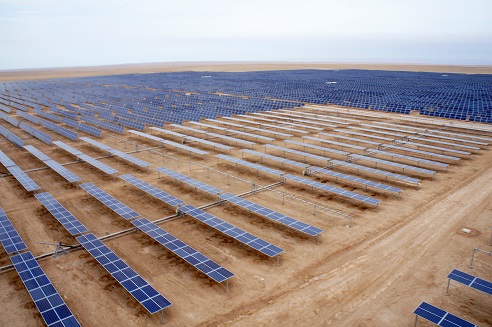Spanish developer Solarpack has launched a new business line through its click&go brand that allows customers to secure clean power directly from Solarpack’s solar assets under a remote self-consumption model.
Under the scheme, customers in Spain will not need to install any residential solar and will instead secure their power from one of Solarpack’s solar farms. The first project to be used under the new scheme will be a 10MW solar farm in the Spanish city of Cáceres.
Solarplack will guarantee the supply of any extra energy that might be needed and the sale of any excess energy that is not consumed, it said in a media statement. The customer can also use all the production from their solar panels for self-consumption at cost, even if they change their home or business.
The Getxo, Spain-based company said the cost of producing electricity from solar of around €30/MWh (US$33/MWh) “allows for considerable electricity bill savings over a sustained period”, adding that its fully online contracting system will be immediate and devoid of any paperwork or administrative procedures.
“With this new solution, access to self-consumption becomes universal and is no longer dependent on having a rooftop or living in an area with sufficient solar resource,” said Solarpack.
“click&go is an immediate, flexible, digital solution that allows anyone who worries about the environment and about saving on their electricity bills to produce their own renewable energy at a stable, low cost,” said Ivan Nieto, head of energy sales at Solarpack.
The announcement comes on the back of sky-high energy prices in Europe following gas shortages and market uncertainty, compounded by the recent invasion of Ukraine. In response, the European Commission has called on countries to accelerate the deployment of renewables at “lightning speed” in order to reduce reliance on Russian imports and protect consumers from high prices.
Nieto said that Solarpack had “significantly reduced end users’ main barriers to entry for solar energy: the high investment needed and the need for adequate sunshine and roof space”.
Early last year, Solarpack updated its guidance to have between 1.8GW and 2GW of solar in operation and under construction by 2023 after its 2020 was marked by “intense construction activity”.
Solarpack launches click&go remote self-consumption model for Spanish customers
Under the system, Spanish customers will be able to directly secure power supply from a Solarpack farm potentially hundreds of miles away from where they live.
Source:PVTECH






